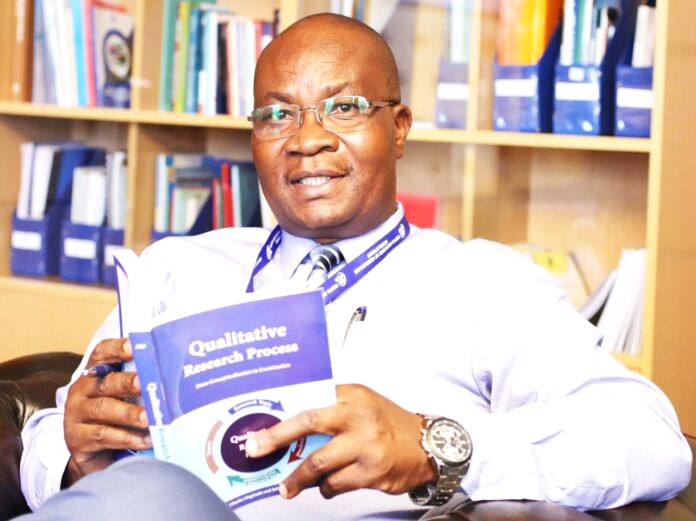The Kenya Institute of Curriculum Development (KICD) has issued a clarification in response to concerns raised in a recent audit report, saying that no public money was lost during the distribution of textbooks and learning materials. This comes after the Auditor General’s findings suggested possible losses amounting to Ksh 540 million.
The institute flagged discrepancies in the 2023/2024 Financial Year were not a result of financial malpractice but stemmed from inaccurate data on learners and schools entered into the National Education Management Information System (NEMIS).
KICD’s Chief Executive Officer, Charles Ong’ondo, attributed the inconsistencies to mismatched data on enrollment and school records that distorted the distribution figures.
“There is no single cent lost. The concerns stem from inaccurate learner and school numbers on NEMIS.”
Said Ong’ondo.
He added that the institute was finalising a comprehensive report to present to Parliament, addressing all issues cited in the audit.
Ong’ondo also dismissed claims regarding the delivery of irrelevant books, insisting all materials distributed conformed to curriculum requirements. “There is no issue of irrelevant books. Every book delivered was within the curriculum,” he said.
He further pointed out that KICD does not oversee the staffing of subject teachers, saying that this mandate lies with the Teachers Service Commission (TSC) and the Ministry of Education (MoE).
READ ALSO:
Good news as TSC to pay July salaries with CBA increments by end of this week
Responding to allegations that textbooks were delivered to schools that don’t exist, Ong’ondo was categorical: “The lists used for book distribution come from the Ministry of Education. Unless the Ministry registers a school, it will not be included in our system. So there is no possibility of ghost schools.”
Additionally, he stressed that payments are made strictly upon verification of delivery: “No payment is made without signed delivery notes from headteachers.”
Auditor General Nancy Gathungu, in her covering of financial years 2020–21 through 2023–24, flagged various irregularities in the textbook distribution process.
It pointed out a discrepancy where the MoE disbursed Ksh 27.8 billion.
At the same time, KICD acknowledged receiving Ksh 28.2 billion, raising questions over an unexplained difference of Ksh 378 million.
With the textbook programme intended to promote equitable access to learning materials across public schools, the report revealed that numerous institutions received excessive supplies—an oversupply valued at Ksh 90.8 million—while others suffered acute shortages, accounting for a Ksh 295 million shortfall.
The report also revealed that the distribution of books for subjects not offered in some schools, resulting in misallocated materials worth Ksh 30.3 million. Another Ksh 41.4 million was attributed to schools that either never received the books or were given fewer copies than allocated.
By Joseph Mambili
You can also follow our social media pages on Twitter: Education News KE and Facebook: Education News Newspaper for timely updates.
>>> Click here to stay up-to-date with trending regional stories
>>> Click here to read more informed opinions on the country’s education landscape






